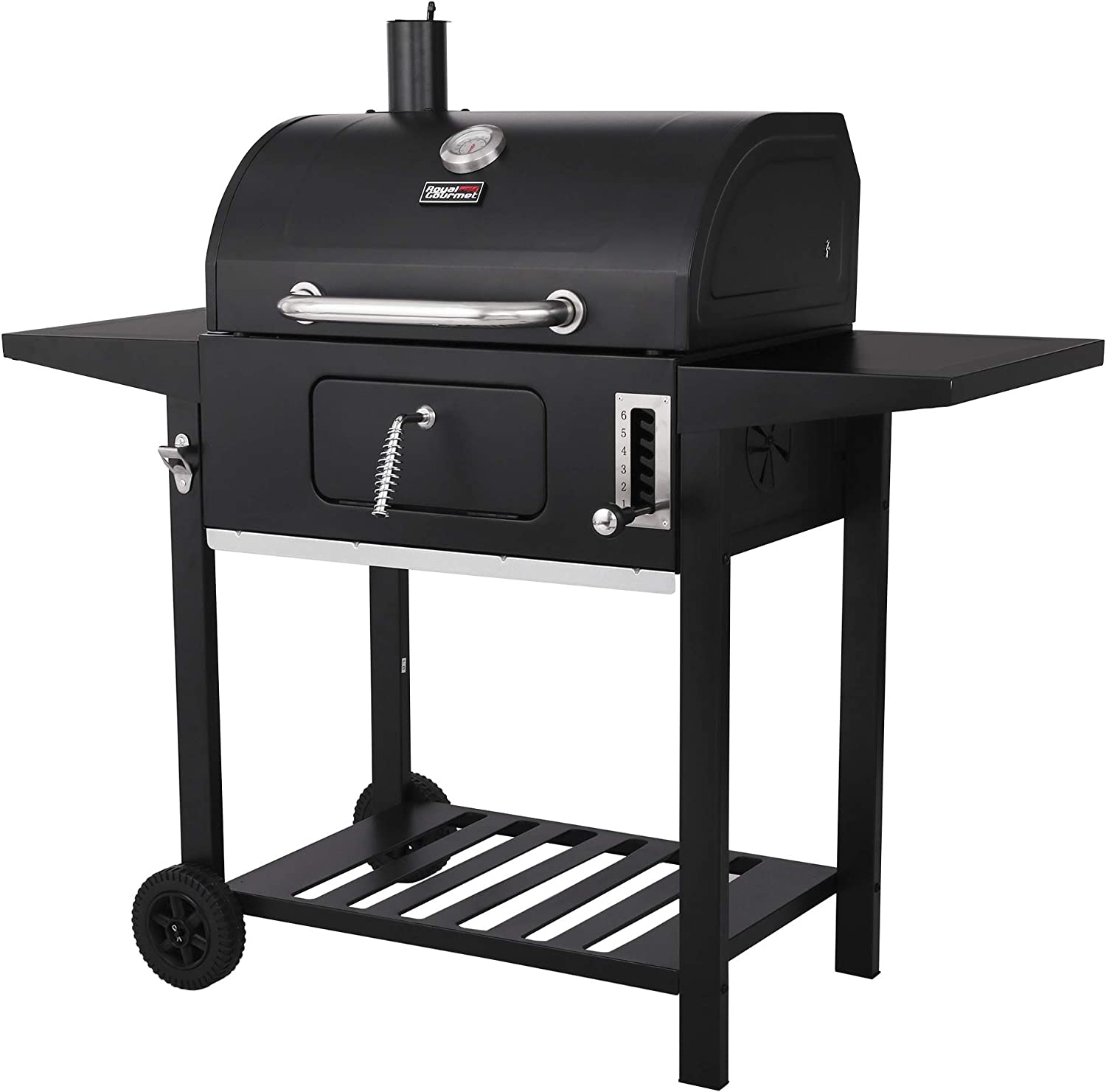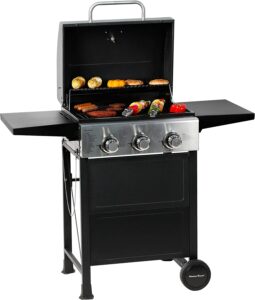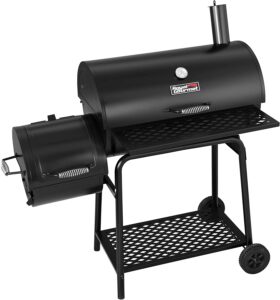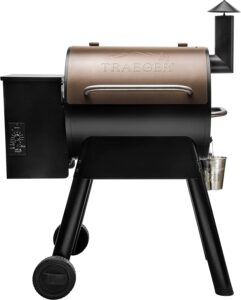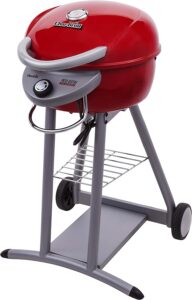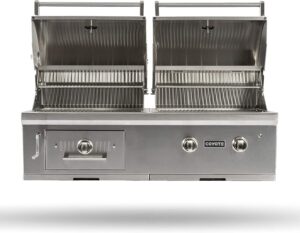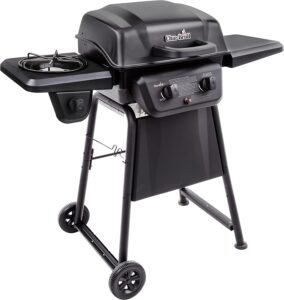Introduction to Types of Grills
When it comes to outdoor cooking, choosing the right types of grills is crucial to achieving delicious and satisfying results. With a variety of options available, it’s essential to understand the pros and cons of different grill types to make an informed decision. In this article, we will explore gas grills, charcoal grills, pellet grills, electric grills, and hybrid grills, highlighting their unique features and discussing the advantages and potential drawbacks of each. So, let’s dive into the world of grills and find the perfect match for your outdoor cooking needs!
Gas Grills
Gas grills are popular for their convenience and ease of use. These types of grills are powered by propane or natural gas and offer quick and precise heat control. With the turn of a knob, you can adjust the temperature to achieve optimal cooking conditions. Gas grills also ignite instantly, eliminating the need for charcoal or wood preheating.
Pros:
- Convenience: Gas grills are known for their ease of use and quick setup. They are types of grills that eliminate the need for charcoal preparation or wood handling.
- Temperature Control: Gas grills allow precise temperature adjustments, giving you better control over cooking.
- Versatility: Gas grills often come with additional features such as side burners, rotisserie attachments, or smoker boxes, enhancing the cooking experience.
Cons:
- Limited Smoky Flavor: Gas grills may not provide the same smoky flavor as charcoal or pellet grills. However, you can use smoker boxes or wood chips to add some smokiness to your dishes.
- Higher Upfront Costs: Gas grills generally have a higher initial cost compared to charcoal grills.
Charcoal Grills
Charcoal grills are renowned for their traditional cooking method and the unique flavor they infuse into food. These types of grills use charcoal briquettes or natural lump charcoal as the fuel source. Charcoal grills offer high heat and are ideal for searing steaks or achieving that authentic smoky taste.
Pros:
- Smoky Flavor: Charcoal grills provide the classic smoky flavor that many grilling enthusiasts crave.
- High Heat: Charcoal grills can reach high temperatures, allowing for excellent searing and creating grill marks.
- Affordability: Charcoal grills are often more affordable than gas or pellet grills.
Cons:
- Longer Preheating Time: Charcoal grills require more time to heat up and reach the desired cooking temperature.
- Involvement in Fire Management: With charcoal grills, you need to monitor and adjust the fire, ensuring consistent heat throughout the cooking process.
Pellet Grills
Pellet grills combine the convenience of gas grills with the flavor benefits of charcoal grills. These types of grills use wood pellets as the fuel source, offering a unique cooking experience. Pellet grills feature an electric-powered auger that feeds the pellets into the firepot, providing consistent heat and controlled smoke.
Pros:
- Versatility: Pellet grills can grill, smoke, bake, roast, and even braise, allowing for a wide range of cooking techniques.
- Ease of Use: Pellet grills feature automated temperature control, making them user-friendly and convenient.
- Flavor Infusion: Pellet grills impart a distinct smoky flavor into the food, enhancing its taste.
Cons:
- Higher Costs: Pellet grills tend to be more expensive than gas or charcoal grills due to their advanced features and technology.
- Dependence on Electricity: Pellet grills require electricity to power the auger and maintain the desired temperature.
Electric Grills
Electric grills are a suitable option for those who prefer a smokeless and hassle-free cooking experience. These types of grills operate by plugging into a power outlet, providing consistent heat without the need for fuel or fire management. Electric grills are compact, making them ideal for balconies, small spaces, or areas with restrictions on open flames.
Pros:
- Convenience and Ease of Use: Electric grills are incredibly easy to operate. Simply plug them in, set the desired temperature, and start grilling.
- Indoor Use: Electric grills are smokeless, making them suitable for indoor use in situations where traditional grills are not feasible.
- Easy Cleanup: Electric grills are typically easier to clean and maintain compared to other grill types.
Cons:
- Limited Flavor Infusion: Electric grills may not impart the same smoky flavor as other grill types. However, you can use wood chips or flavored marinades to enhance the taste.
- Reliance on Power Outlets: Electric grills require access to electricity, which may limit their portability.
Hybrid Grills
Hybrid grills offer the best of both worlds by combining multiple fuel sources, such as gas, charcoal, or pellets, in a single unit. These versatile types of grills provide flexibility and allow you to experiment with different cooking techniques and flavors.
Pros:
- Versatility: Hybrid grills offer the ability to switch between different fuel sources, giving you more options for your cooking preferences.
- Experimentation: With hybrid grills, you can explore different flavors by using charcoal, wood pellets, or gas, depending on the desired outcome.
- Flexibility: Hybrid grills adapt to various cooking styles, making them suitable for a wide range of dishes.
Cons:
- Higher Costs: Hybrid grills are typically more expensive than single-fuel grills due to their advanced design and additional features.
- Complexity in Operation: Hybrid grills may require some learning curve to understand and optimize the different fuel sources and cooking methods.
Factors to Consider When Choosing a Grill
When selecting different types of grills, it’s important to consider several factors to ensure it aligns with your needs and preferences. Here are some key considerations:
- Budget: Determine your budget range for a grill, including any additional features or accessories.
- Cooking Style: Consider your preferred cooking techniques, such as grilling, smoking, or roasting, and choose a grill that accommodates those methods.
- Available Space: Assess the area where you plan to place the grill and choose a size that fits comfortably.
- Fuel Availability: Consider the availability and cost of the fuel source required for the grill type you’re interested in.
- Maintenance and Cleanup: Evaluate the ease of cleaning and maintaining the grill, as well as any additional accessories required.
By considering these factors, you can make a well-informed decision and select the types of grills that best suits your outdoor cooking needs.
Conclusion
In conclusion, exploring the different types of grills allows you to make an informed decision when choosing the right grill for your outdoor cooking adventures. Gas grills offer convenience and temperature control, while charcoal grills provide the classic smoky flavor. Pellet grills combine versatility and flavor infusion, while electric grills offer ease of use and indoor cooking options. Hybrid grills provide flexibility and experimentation with various fuel sources. By considering factors like budget, cooking style, available space, and maintenance, you can confidently select the types of grills that meets your requirements. So, get ready to fire up the grill and enjoy delicious meals in the great outdoors!
FAQ – Types of Grills
1. Can I use wood chips with a gas grill to add smoky flavor? Yes, you can use smoker boxes or foil pouches filled with wood chips on a gas grill to infuse smoky flavors into your dishes.
2. Are pellet grills suitable for beginners? Yes, pellet grills are beginner-friendly due to their automated temperature control and versatility in cooking techniques.
3. Are electric grills suitable for outdoor use? Yes, electric grills are suitable for outdoor use, but they are particularly beneficial for situations where open flames are restricted, such as apartments or condos.
4. Can hybrid grills operate multiple fuel sources simultaneously? Yes, some hybrid grills allow for simultaneous operation of different fuel sources, giving you more flexibility in cooking methods and flavors.
5. How often should I clean my grill? It’s recommended to clean your grill after each use to maintain its performance and longevity. Regular cleaning helps prevent grease buildup and ensures a safe cooking environment.
